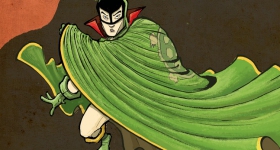For Hyphen's first fiction web feature, Matthew Salesses gives us seven short shorts from his collection I'm Not Saying, I'm Just Saying. Each offers a glimpse of the fraught gap that often exists in loving someone.
-- Karissa Chen, Fiction & Poetry Editor
THE HEART HAS A WAITING ROOM
The wifely woman said what she was doing with me was trying to give in without giving up. I had thought I would be prepared, if she left me. Now I wished I were a praying man. On the weekend, I found a liquor store that delivered. I opened my emergency meds. I saw the date but didn’t care. The pills still worked, which I tried telling her. They didn’t care if they expired.
INSTINCT WAS DEAD
for Valentine’s Day
The wifely woman made her storms in the background; her stare never teetered between attack and retreat. I tried to hold that gaze, like in an animal encounter. But I was the flip-flopper. I was the wild. She was human; given time, she might forgive and forget. Either way, it would be a decision.
IT WAS A LARGE ENOUGH WORLD WHEN IT NEEDED TO BE
The wifely woman had been a beauty and then a hungry teen and then a beauty again. I had caught her with a bout of flattery, following a string of secret restaurants I had accumulated over a decade in the city. There wasn’t much choice for her in the suburbs. She said she lived the entire world on her trips, so when she came back, she could stand a little cooping up. “You could always run away,” I said once. She flipped a coin, but she was in Germany then so I didn’t see how it landed.
EPIC FIGHTS
After five years of silence, five years of talk. I looked up distraught in the thesaurus. The wifely woman kept attacking herself. What was I if she was stupid, gullible, blind? Odysseus spearing poor Cyclops, who was only who he'd been made? The wifely woman wove a tapestry. I fucked Calypso. I studied my affair in the threads. Unwind this, she said. Night after night, I felt the fragility of her creation. I told myself the past was not the future.
A BLACK EYE IS NOTHING
We had an excuse -- not in front of the boy -- though she wasn’t beholden by genes. He had come into our lives out of nowhere. Later, I touched a tiny fist-print in the wall, then went looking for him, to adjust his understanding of fault.
HOW TO BUY LIFE
We went to visit the cat on the farm to see it in another unnatural environment. Then we were supposed to know how it would adjust. I looked at the boy and wondered what he was thinking, if he remembered his birth. Flowers grew along the edges of the porch and the first we saw of the cat was her claws. She reached out from the dark to kill something.
LET SOMEONE ELSE DRIVE
I liked to leave the windows down -- it had been a long winter -- but the kitten kept climbing the boy’s shirt, batting at the wind through the crack. I wanted to warn it, to explain that the boy could be a killer. I wanted to bring it home and let it dig up our old cat, as the boy watched. I wanted everyone to love each other. My feelings were complicated. I knew this was the point in the novel where the protagonist is revealed to the reader by an object. Where, if you pay close enough attention, you know the protagonist has changed before he does. But all I could think to do was hand the wheel to the wifely woman and reach back for the scruff on the kitten’s neck.
Matthew Salesses was born in Korea and adopted at age two. He is the author of 'The Last Repatriate' (Nouvella) and two chapbooks, 'Our Island of Epidemics' (PANK) and 'We Will Take What We Can Get' (Publishing Genius). Other stories from 'I'm Not Saying, I'm Just Saying' have or will appear in The Collagist, The Literarian, and Puerto del Sol, among others. He writes a column about his Korean wife and baby for the Good Men Project and edits their fiction. On the web, he is matthewsalesses.com and @salesses.










Comments